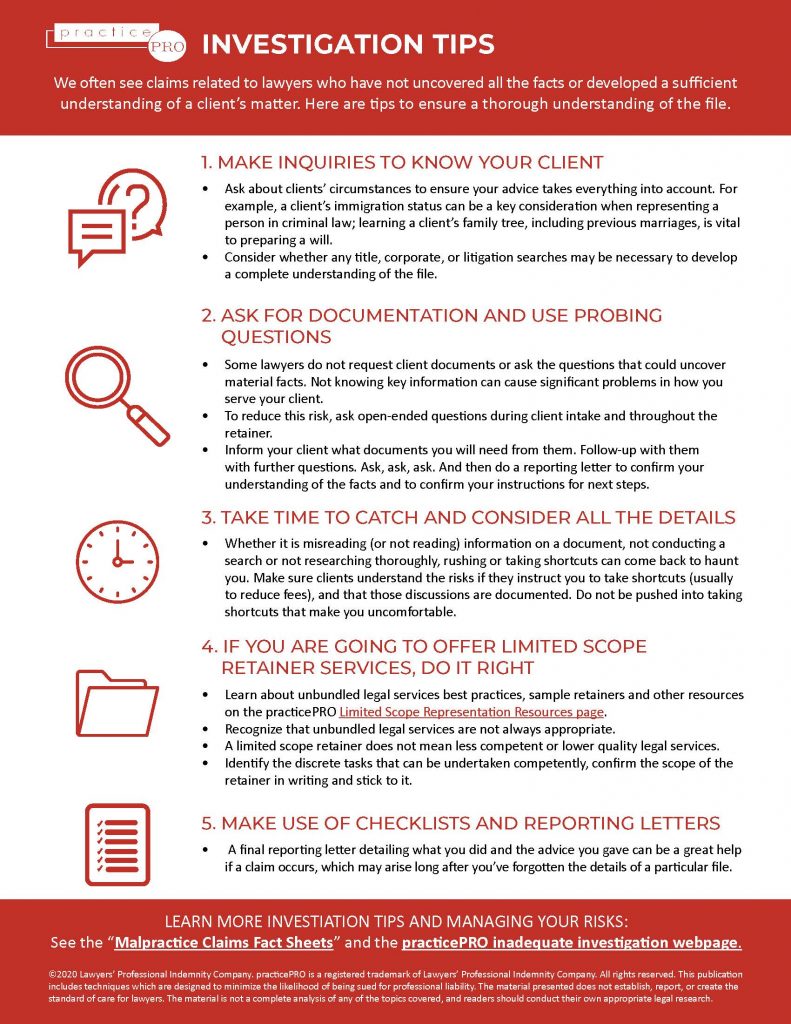Tips to Avoid Inadequate Investigation Claims

We often see claims related to lawyers who have not uncovered all the facts or developed a sufficient understanding of a client’s matter. These claims go to the very core of what lawyers are supposed to do for their clients – give legal advice based on the client’s specific situation – and involve the lawyer not taking extra time or thought to dig deeper and ask appropriate questions about the matter. Here are tips to ensure a thorough understanding of the file.

